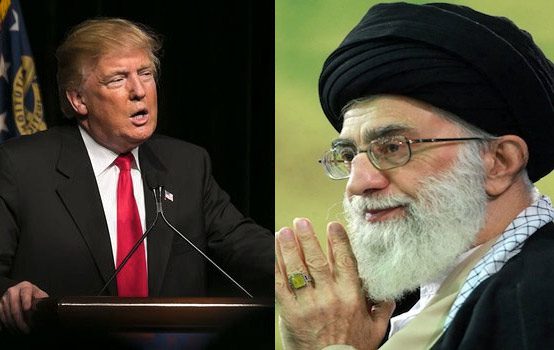Reneging on the Nuclear Deal Sabotages Diplomacy with North Korea

This New York Times article spells out why Trump’s desire to scrap the nuclear deal with Iran and his sudden willingness to meet with Kim are in conflict:
The Iranian and North Korean nuclear programs, drastically different but often spoken of in the same breath, are now being thrust together, as President Trump’s determination to kill the landmark 2015 accord limiting Tehran’s capabilities is colliding with his scramble to reach a far more complex deal with Pyongyang.
I made a similar point in yesterday’s post. One thing I would add here is that the collision the article describes is not new and became unavoidable once Trump was determined to scrap the deal with Iran. It has been hard to miss that Trump wanted to renege on the Joint Comprehensive Plan of Action (JCPOA) all along, and the only reason he has not done so is so that he can pretend that he first tried to “fix” it by making absurd demands that the deal’s opponents knew in advance would never be accepted. The president reportedly confirmed to Israel Prime Minister Netanyahu last week that the U.S. would withdraw from the deal in the absence of “significant changes”:
President Trump told Israeli Prime Minister Netanyahu in their meeting at the White House last Monday that he won’t show flexibility in the negotiations with France, Germany and the U.K. on amending the Iran nuclear deal, two senior Israeli officials told me.
The officials say Trump told Netanyahu that until now the three European powers only proposed “cosmetic changes” that he doesn’t find satisfactory. Trump said he demands “significant changes” in the Iran deal itself and not simply the addition of a supplemental agreement between the U.S. and the European countries, according to the officials.
The bottom line: Trump stressed that if his demands are not met, the U.S. will withdraw from the deal.
European governments were never going to be willing to give Trump what he wanted, because to give him everything he demanded would have required them to join the U.S. in violating the agreement they had made. U.S. withdrawal has been extremely likely ever since Trump refused to certify the deal last fall, and it became a virtual certainty after his ridiculous ultimatum to our allies.
It shouldn’t come as a shock that reneging on a carefully negotiated, successful nonproliferation agreement would have negative consequences for arms control diplomacy with a nuclear-armed state. Iran made major concessions that it didn’t have to make under the Non-Proliferation Treaty, and as a result it has accepted significant restrictions on its nuclear program to ensure that their program remains peaceful. In return, it was supposed to receive substantial sanctions relief that has been very slow in coming, and it expected to be able to welcome foreign investment that the U.S. has been actively discouraging in a pretty clear breach of our own commitments. Meanwhile, the U.S. has been taking a harder line with Iran across the board since Trump took office. The post-deal treatment of Iran is hardly a ringing endorsement of the benefits of making an agreement with the U.S. and its allies. Trump wants to renege on the deal anyway because it did not force Iran’s complete surrender. That bodes ill for what Trump thinks a “good deal” with North Korea would look like. Once the U.S. reneges on the JCPOA, North Korea will have another very big reason not to trust any U.S. promises made during negotiations with them.
Trump’s position on the nuclear deal is particularly absurd because the JCPOA is the kind of strong nonproliferation agreement that the U.S. wishes it could have negotiated with North Korea in the past. The agreement that Trump denounces as the worst of all time was a substantial improvement on the Agreed Framework negotiated with North Korea, and right now it would be an extraordinary triumph if North Korea would return to the weaker restrictions of the Agreed Framework. The Bush administration’s disastrous decision to blow up the agreement with North Korea in a vain pursuit of forcing more concessions is what brought us to the current impasse with the DPRK, and Trump is intent on imitating one of Bush’s most serious and lasting errors.
Trump presumably doesn’t even realize that he is doing this because he buys the convenient, false story that North Korea has nuclear weapons because previous efforts at engagement failed. On the contrary, engagement with North Korea has been the only thing that has worked at all, but the Bush administration insisted on and all-or-nothing outcome and ended up with a nuclear-armed North Korea. Pulling out of the nuclear deal with Iran would seriously undermine any diplomatic efforts with North Korea, but I fear that Trump and his advisers don’t understand or care.
The Trump administration is proceeding under the mistaken assumption that their “maximum pressure” campaign has forced North Korea into doing something it doesn’t want to do, but the truth is that their campaign has already failed and isn’t going to produce the results they want. Trump wants to renege on the JCPOA, and when he does he will think that he is showing the world how “tough” he is being on an adversary, but all that anyone else will see is proof that there is no point in making a deal with the U.S. that a future administration can discard like the trash.
Comments